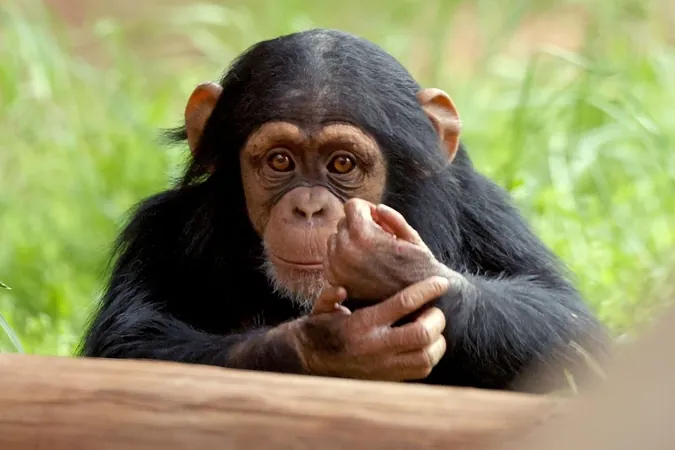
Shocking Study: Infinite Time Can't Save Monkeys from Writing Shakespeare!
2024-10-31
Author: Jia
PARIS – A Whimsical Notion Challenged
We often hear that if a monkey types randomly on a keyboard for an infinite amount of time, it could eventually write the complete works of Shakespeare. This whimsical notion has captured imaginations for generations, implying that given enough time, anything is possible. However, a groundbreaking study by two Australian mathematicians has thrown this idea into serious doubt.
Challenging the Infinite Monkey Theorem
Their research reveals that even if we gave every chimpanzee on the planet the entire lifespan of the universe, they would “almost certainly” never be able to produce a single play or sonnet by the revered bard. This conclusion challenges the long-standing "infinite monkey theorem," a concept which has been around for more than a century with roots attributed to figures like French mathematician Émile Borel and British anthropologist Thomas Huxley.
The Study's Methodology and Findings
In this light-hearted yet peer-reviewed study published in the journal Franklin Open, mathematicians Stephen Woodcock and his colleague set up parameters to simulate what would happen if monkeys typed within finite limits. The study assumed a scenario where a monkey typed one keystroke per second for about 30 years on a keyboard with 30 keys—representing the standard English alphabet plus punctuation marks.
They projected that the ultimate "heat death" of the universe would arrive in roughly a googol years (that's a one followed by 100 zeros!). While the implications of such expansive timeframes are staggering, practical concerns—like a monkey's diet or the eventual engulfment of Earth by the Sun—were brushed aside.
Staggering Odds Against Literary Success
The results of the study were staggering; there’s only about a 5% chance that a single monkey would even manage to type the word “banana” during its lifetime. Considering that Shakespeare’s entire collection consists of 884,647 words—with none being "banana"—the odds appear overwhelmingly against the primates' literary success.
Chimpanzees: A Closer Look
To enhance the scope of their experiment, the researchers examined the capabilities of chimpanzees—humans' closest evolutionary relatives. With an estimated global population of 200,000 chimpanzees, the authors assumed this number would stay consistent until the end of time. Even with this immense workforce, their findings were bleak.
Conclusion from the Researchers
“It’s not even like one in a million,” Woodcock remarked. “If every atom in the universe was a universe in itself, it still wouldn’t happen.” The authors concluded that increasing both the number of typing chimps and their typing speed would not make generating significant written works feasible; in fact, monkey labor is unlikely to yield anything beyond the most trivial of insights.
An Ironic Reflection on Creativity
In an ironic twist, the study suggests that Shakespeare himself may have pondered this very question. Citing a famous quote from "Hamlet," the study concludes with a definitive “no” regarding whether monkey typing could ever replace human scholarship or creativity.
So, the next time you hear whispers of infinity making the impossible possible, remember: Some things are just too good to be true.


 Brasil (PT)
Brasil (PT)
 Canada (EN)
Canada (EN)
 Chile (ES)
Chile (ES)
 España (ES)
España (ES)
 France (FR)
France (FR)
 Hong Kong (EN)
Hong Kong (EN)
 Italia (IT)
Italia (IT)
 日本 (JA)
日本 (JA)
 Magyarország (HU)
Magyarország (HU)
 Norge (NO)
Norge (NO)
 Polska (PL)
Polska (PL)
 Schweiz (DE)
Schweiz (DE)
 Singapore (EN)
Singapore (EN)
 Sverige (SV)
Sverige (SV)
 Suomi (FI)
Suomi (FI)
 Türkiye (TR)
Türkiye (TR)